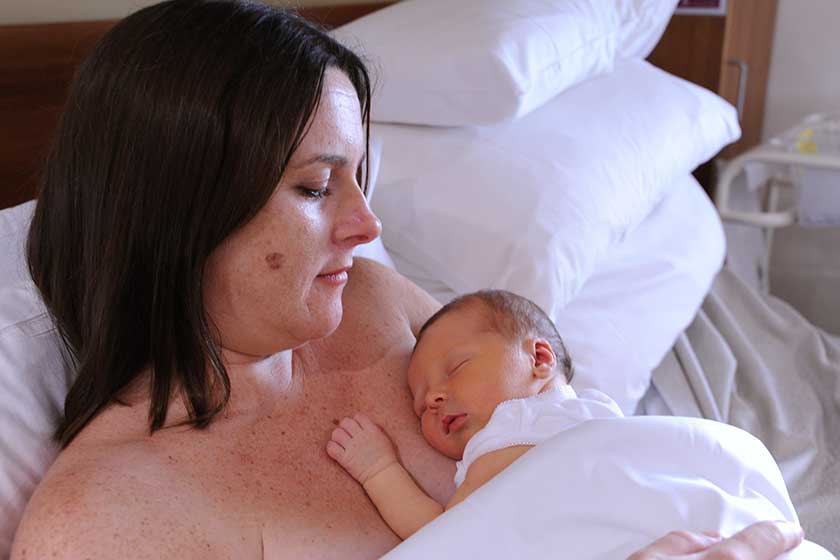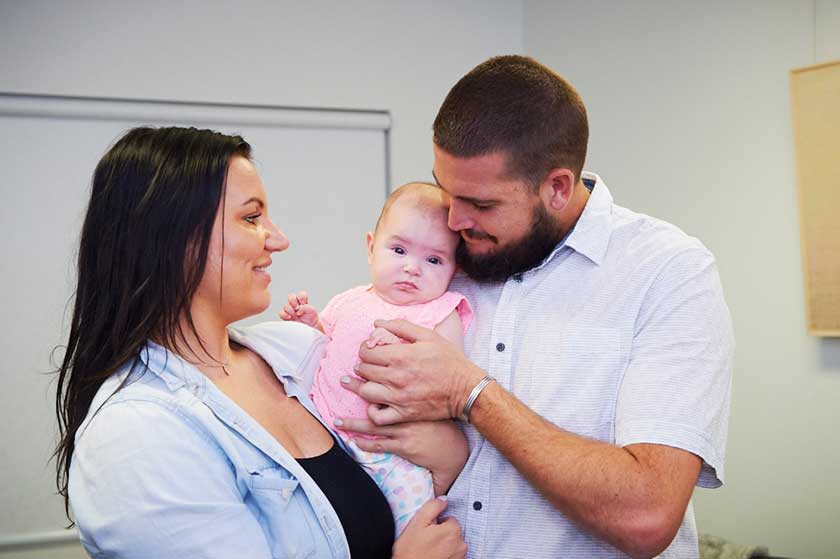For some mothers, breastfeeding comes fairly easily and they are keen and able to meet or exceed the World Health Organisation’s recommendations for exclusive breastfeeding for six months.
Others can experience immense challenges around breastfeeding – physical or emotional - and feel disconnected from their own expectations or that of their partner, peers or broader society.
Why is breastfeeding such an emotional experience for many mothers?
Many people assume breastfeeding will come naturally and be ‘easy’, but this is not always the case. Some mothers feel pressured to breastfeed (or to not breastfeed) and this can be a distressing experience. They may be uncertain where they can go for support and this may contribute feelings of to isolation.
What types of feelings do mothers experience when they have a newborn?
For some mothers, having a new baby is an exciting time. But there are also many challenges, such as the combination of physical and emotional recovery from pregnancy and birth, interrupted sleep, and the challenges of getting to know and understand a baby’s needs.
Some mothers can experience moments, days or weeks of sadness, tearfulness, worry (such as whether they are doing things ‘right’, whether their baby is sleeping or feeding enough), or irritability. Some mothers may have difficulty switching off from thinking about these things and this can leave them feeling stressed or unable to sleep.
What impact does breastfeeding have on these feelings?
Breastfeeding or bottle feeding can be an opportunity for connecting with baby and an enjoyable time. However problems with the feeding process, such as difficulty for baby latching on to the breast, getting enough breastmilk, or being overly hungry and unsettled at the time of the feed, can lead a mother to feel quite stressed and upset during the feeding process.
Is there a stigma around women who don’t breastfeed and how can that impact mothers?
There are many reasons why people choose not to or are unable to breastfeed.
Women who are returning to work or have regular separations from their baby are some of the many reasons mothers may start their baby on expressed breast milk or formula while they are away from their baby.
Decisions about how to feed a baby can be a source of criticism from family, friends or strangers. Some women may feel unable to talk about these views amongst other mothers or within their own families – depending on how women in previous generations in their families have fed their own babies.
The Australian Medical Association recently highlighted the importance of supporting non-breastfeeding women. Support from a professional body like this will hopefully help more women feel comfortable with their decision, whatever their choice might be.
What kind of support is available to mothers struggling with issues related to breastfeeding?
There are a number of support options are available to mothers needing help with breastfeeding. They can:
- Book-in specialist support from lactation consultations at their local hospital (if available). These highly trained consultants can assist with establishing breastfeeding or mixed feeding (breastmilk and formula).
- Make use of the Australian Breastfeeding Association which has an informative website and runs the National Breastfeeding Helpline 1800 mother-2-mother Tel: 1800 686 268. The Breastfeeding Helpline is available seven days a week. It is staffed by trained, volunteer counsellors who answer calls on a roster system in their own homes.
- Contact an emotional wellbeing helpline, such as Perinatal Anxiety and Depression Australia (PANDA) Tel: 1300 726 306.
- Seek advice from their GP, maternal or child health nurse







